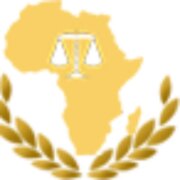Best Energy Regulatory Law Lawyers in DR Congo
Share your needs with us, get contacted by law firms.
Free. Takes 2 min.
Or refine your search by selecting a city:
List of the best lawyers in DR Congo
About Energy Regulatory Law in DR Congo
Energy Regulatory Law in the Democratic Republic of the Congo (DR Congo) encompasses the legal framework that governs the production, distribution, supply, and consumption of energy within the country. This area of law is shaped by national policy, regulatory authorities, and international commitments relating to energy development and sustainability. As one of Africa’s most resource-rich countries, DR Congo’s energy sector is crucial for economic development, social welfare, and environmental protection. The legal landscape addresses issues such as licensing for energy projects, regulation of electricity markets, investment incentives, renewable energy promotion, and compliance with both national and regional standards. It also regulates relationships between public authorities, private investors, and consumers.
Why You May Need a Lawyer
Legal assistance in Energy Regulatory Law is often necessary due to the complexity and technical nature of the sector. Common scenarios where individuals, businesses, or organizations may require legal support include:
- Negotiating or interpreting contracts for energy projects
- Securing licenses, permits, or concessions to generate, transmit, or distribute energy
- Addressing disputes between energy providers and consumers
- Understanding compliance requirements for local and international regulations
- Assisting with mergers, acquisitions, or partnerships within the energy sector
- Navigating taxation, land use, and environmental obligations for energy infrastructure
- Advising on renewable energy investments and incentives
- Representing stakeholders in administrative or judicial proceedings
- Handling expropriations, compensation, or easement issues related to energy projects
Given the high value and public interest in many energy projects, legal oversight ensures that your investments and rights are protected.
Local Laws Overview
The legal and regulatory framework for energy in DR Congo is set by various national laws, governmental ordinances, and regulatory agencies. Key aspects include:
- Regulatory Authority - The Autorité de Régulation du Secteur de l'Electricité (ARE) is the main entity overseeing the electricity sector, ensuring compliance with legal standards and monitoring market actors.
- Primary Legislation - The Electricity Code (Loi n°14/011 du 17 juin 2014) liberalized the electricity sector, ending the monopoly of the state utility SNEL, and opened the market to private entities under regulated conditions.
- Licensing and Permitting - All entities seeking to generate, transmit, or distribute energy must obtain appropriate licenses from the authorities, subject to technical, environmental, and financial criteria.
- Tariffs and Pricing - ARE regulates the approval of tariffs, balancing affordability for consumers with viability for investors.
- Renewables - There are incentives and special regimes for renewable energy production in order to attract investment, especially in rural or underserved areas.
- Environmental Compliance - Energy projects must comply with environmental protection laws, including conducting Environmental Impact Assessments (EIAs).
- Investment Protection - Foreign and domestic investors enjoy certain legal protections, including guarantees on profit repatriation and non-discriminatory treatment.
Foreign investors, government entities, and local entrepreneurs must navigate these regulations to successfully participate in DR Congo’s energy markets.
Frequently Asked Questions
What is the main regulatory authority for electricity in DR Congo?
The Autorité de Régulation du Secteur de l'Electricité (ARE) is the primary regulatory authority for the electricity sector. It supervises the market, grants licenses, sets standards, and resolves disputes.
Do private companies need a license to produce or sell electricity?
Yes. Any entity intending to generate, transmit, distribute, or supply electricity must obtain the appropriate license from the relevant authority in accordance with the Electricity Code.
Are there incentives for investing in renewable energy?
Yes. The government encourages investment in renewable energies through tax exemptions, customs benefits, and streamlined licensing processes for qualifying projects, especially in rural electrification.
Can foreign investors own energy assets in DR Congo?
Foreign investors are permitted to own energy assets, subject to compliance with local laws and regulations that guarantee fair and non-discriminatory treatment.
What types of energy projects require an Environmental Impact Assessment (EIA)?
Most large-scale or infrastructure-related energy projects, particularly hydroelectric, solar, or fossil fuel plants, require an EIA to evaluate and mitigate environmental impacts.
Who determines electricity tariffs and how can they be contested?
Tariffs are proposed by market operators but must be reviewed and approved by the ARE. Stakeholders, including consumers and producers, may contest tariff decisions through administrative procedures.
What legal protections exist for consumers of electricity?
Consumers are protected through anti-monopoly regulations, quality standards, dispute resolution mechanisms, and transparent pricing processes enforced by the ARE.
Is it possible to negotiate power purchase agreements with the government or utilities?
Yes. It is common for energy producers, particularly in the independent power producer (IPP) sector, to negotiate power purchase agreements specifying the terms of sale, tariffs, and other obligations.
How are land rights and access handled for energy infrastructure?
Developers typically require land rights or servitudes for constructing and operating energy infrastructure. Negotiations may involve governmental procedures and compensation for affected landowners.
What should I do if I have a dispute regarding energy services?
Disputes can be resolved through the internal mechanisms of the energy provider, the ARE’s dispute resolution functions, or through the judicial system, depending on the nature and complexity of the case.
Additional Resources
If you are seeking more information about Energy Regulatory Law in DR Congo or need additional support, consider reaching out to:
- Autorité de Régulation du Secteur de l’Electricité (ARE) - The official regulator providing information on licensing, tariffs, and compliance.
- Ministry of Hydraulic Resources and Electricity - Responsible for national energy policy and sector development.
- SNEL (Société Nationale d’Electricité) - The state-owned national utility providing insights on market operations and consumer services.
- Chamber of Mines and Energy - Industrial association which may offer guidance or networking opportunities for energy sector stakeholders.
- Local and international law firms - Providing up-to-date legal counsel and representation for complex regulatory matters.
Next Steps
If you believe you need legal assistance in Energy Regulatory Law in DR Congo, consider taking the following actions:
- Clearly identify your legal needs and collect all relevant documentation related to your energy project or issue.
- Reach out to a licensed lawyer or law firm with experience in energy or infrastructure law in DR Congo.
- If your issue relates to a regulatory matter, consider contacting the Autorité de Régulation du Secteur de l’Electricité (ARE) or the relevant governmental body for initial guidance.
- Review available guidelines, codes, and regulations to better understand your obligations and rights.
- Prepare your questions and concerns in advance to get practical and focused advice during your legal consultation.
Professional legal support can ensure compliance, facilitate negotiations, and protect your interests as you navigate the dynamic energy sector in DR Congo.
Lawzana helps you find the best lawyers and law firms in DR Congo through a curated and pre-screened list of qualified legal professionals. Our platform offers rankings and detailed profiles of attorneys and law firms, allowing you to compare based on practice areas, including Energy Regulatory Law, experience, and client feedback.
Each profile includes a description of the firm's areas of practice, client reviews, team members and partners, year of establishment, spoken languages, office locations, contact information, social media presence, and any published articles or resources. Most firms on our platform speak English and are experienced in both local and international legal matters.
Get a quote from top-rated law firms in DR Congo — quickly, securely, and without unnecessary hassle.
Disclaimer:
The information provided on this page is for general informational purposes only and does not constitute legal advice. While we strive to ensure the accuracy and relevance of the content, legal information may change over time, and interpretations of the law can vary. You should always consult with a qualified legal professional for advice specific to your situation.
We disclaim all liability for actions taken or not taken based on the content of this page. If you believe any information is incorrect or outdated, please contact us, and we will review and update it where appropriate.
Browse energy regulatory law law firms by city in DR Congo
Refine your search by selecting a city.












